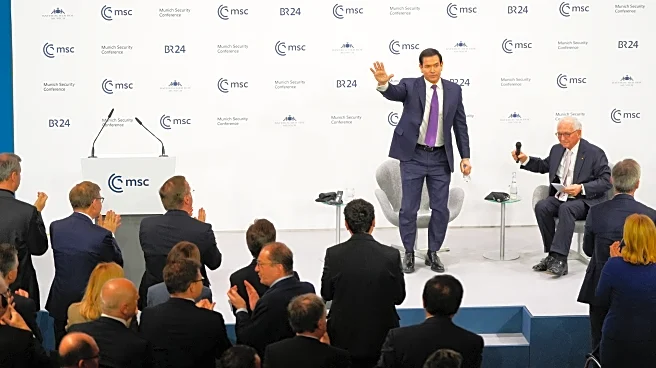Rapid Read • 8 min read
The U.S. Department of Commerce has announced its intention to impose new steel import taxes on South Africa and nine other countries, following affirmative determinations of unfair pricing and government subsidies in these nations' steel industries. The proposed taxes, known as anti-dumping and countervailing measures, aim to protect U.S. steelmakers from foreign competitors selling products below market prices or benefiting from unfair subsidies. The determinations cover $2.9 billion in imports from countries including Australia, Brazil, Canada, Mexico, the Netherlands, South Africa, Taiwan, Turkey, the United Arab Emirates, and Vietnam. According to U.S. Under Secretary of Commerce for International Trade William Kimmitt, American steel companies and workers deserve to compete on a level playing field. The taxes are not yet in effect, pending a determination by the International Trade Commission (ITC) on the injury to the domestic steel industry.
AD
The imposition of these steel import taxes could significantly impact U.S. industries reliant on imported steel, such as automotive, appliance, and construction sectors, by increasing costs. This move is part of a broader protectionist agenda under President Trump, aimed at safeguarding American industries from foreign competition. The decision could strain trade relations with the affected countries, particularly South Africa, which has already faced high tariffs on its exports to the U.S. The potential loss of duty-free access under the African Growth and Opportunity Act (AGOA) could further impact South Africa's export-driven economy, affecting various sectors including steel, aluminum, and automotive components.
Before the new taxes can be implemented, the International Trade Commission (ITC) must make a determination on whether the domestic steel industry has been injured by these imports. If the ITC makes an affirmative injury determination, the Commerce Department will issue anti-dumping and countervailing orders. This decision could lead to further trade tensions between the U.S. and the affected countries, potentially prompting retaliatory measures or negotiations to resolve the disputes.
The broader implications of these trade measures highlight the ongoing challenges in international trade relations, particularly under protectionist policies. The focus on unfair pricing and subsidies underscores the complexities of global trade dynamics and the need for regulatory frameworks to ensure fair competition. The situation also raises questions about the long-term impact on global supply chains and the potential for shifts in trade alliances.
AD
More Stories You Might Enjoy











